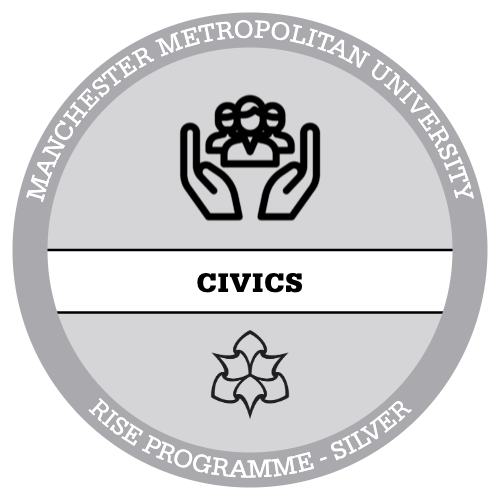 //REWORK THIS
//REWORK THIS
‘Precarity, Publishing, and Progress: A Seminar on Nineteenth-Century Women Writers’
This session is likely to be of particular interest for students of Art, American Literature, English Literature, Fashion, History, and Publishing, and those with an interest in travel writing, women’s studies and/or the long nineteenth century.
Please note: The seminar runs from 3-5pm on Wednesday 24th April in Geoffrey Manton Lecture Theatre 5. This is one half of a full day of activity. If your schedule allows, please join us for the first half (and additional RISE points) at ‘Culture & Context: C19th Art in a C19th Museum for the C21st Century’ at Manchester Art Gallery from 10-12am. See that RISE entry here for more details.
The session will be introduced and chaired by Dr Rachel Dickinson (Reader in English and Interdisciplinary Studies, Manchester Metropolitan University. There are three speakers:
Dr Alice de Galzain (Lecturer in American Literature, University of Sussex)
‘Women Transcendentalists in the Publishing World: Margaret Fuller and Caroline Healey Dall’s Stories of Resilience as Editors of the Dial and The Una’
This paper explores the parallels between ;Margaret Fuller and Caroline Healey Dall’s experiences in the publishing world in antebellum America, aiming to show how the challenges they faced as editors of the Dial (Fuller) and The Una (Dall) informed their women’s rights advocacies. The conditions in which they had to work were extremely precarious—a precarity that had everything to do with women’s legal and socio-economic status in the antebellum period. I wish to expand our understanding of the status of women intellectuals within Transcendentalist circles, focusing specifically on how their fight against workplace gender discrimination influenced their feminist perspectives.
Dr Rachel Nolan (Lecturer in English, Manchester Metropolitan University )
‘Editing Facts and Writing for the Future: Nineteenth-Century American Women’s Economic Writing’
In the years prior to the Civil War, the reformer Virginia Penny travelled across the United States with the aim of identifying and recording the growing number of occupations available to women. She documented her findings in her 1863 book Employments of Women: A Cyclopedia of Women’s Work. Women’s history and labor studies scholars have for over a century mined the text for facts about nineteenth-century economic life, and the achievements of working-class and feminist historiography represents Penny’s legacy. This talk argues, however, that an overreliance on historical and social scientific methods of analysis has limited our understanding of the formal, linguistic, affective, and idealistic dimensions of Penny’s editorial work and writing, as well as of the importance of her enterprise to readers across the second half of the nineteenth century. By reading Penny’s Employments of Women as a work of literature, this talk will demonstrate that the text constructs a female encyclopedic subject, a composite figure that bid nineteenth-century female readers to imagine themselves into a new economic position and inspired creative forms of feminist action.
Prof Laurence Rousillon-Constanty (Professor of British Literature and Aesthetics at the University of Pau et les Pays de L’Adour’) ‘Ludicrous and Battered Crinolines: Dress as Empowerment in Mary Eyre’s Travel Writings’.
Designed in response to the coronavirus outbreak, the “Well-Distance-Being” created by Belgian designer Sep Verboom in 2020 (https://livable.world/en/platform/attitudes/well-distance-being) is a contemporary reminder of the ambivalence of crinoline both as a means to bodily engage with the world around us while preserving social distances in a safely caged shell – an experience that every Victorian female traveller would have been familiar with when climbing a mountain or boarding a train. Indeed, as Jane Thomas writes in her 2004 book, Pictorial Victorians: the Inscription of Values in Word and Image, the cage crinoline operated as a “metaphor for female emancipation, literally enabling women to occupy a wider sphere, but it was also a way of checking this freedom, of emphasizing women’s frivolity and irrationality and, by implication, their unsuitability for public life.” (78) Following up on the numerous examples of the connection between the crinoline and the female body, this paper aims to investigate the textual and visual representation of the crinoline through the writings of Mary Eyre, author of two travelogues about France and Spain in the mid-Victorian period who, unlike many female travellers of the period, made the journey to the Continent alone and with no obvious health reason.
Associated Badges:
In A Nutshell...
- Develop... your understanding of our culture through a Victorian lens.
- Explore... C19th century culture in the USA, England and France with female authors.
- Learn... about difficulties faced by female professionals in the C19th.
- Participate... in a Q&A session to join in the conversation
- Earn up to 6 Rise points ... which can be recognised within your degree.
Schedule
-
15:00 to 17:00 on 24/04/24 - Geoffrey Manton Building, Main Atrium, Lecture Theatre 5
Attend and participate in a research seminar This seminar will provide you with an opportuniy to learn about and discuss nineteenth-century women writers








